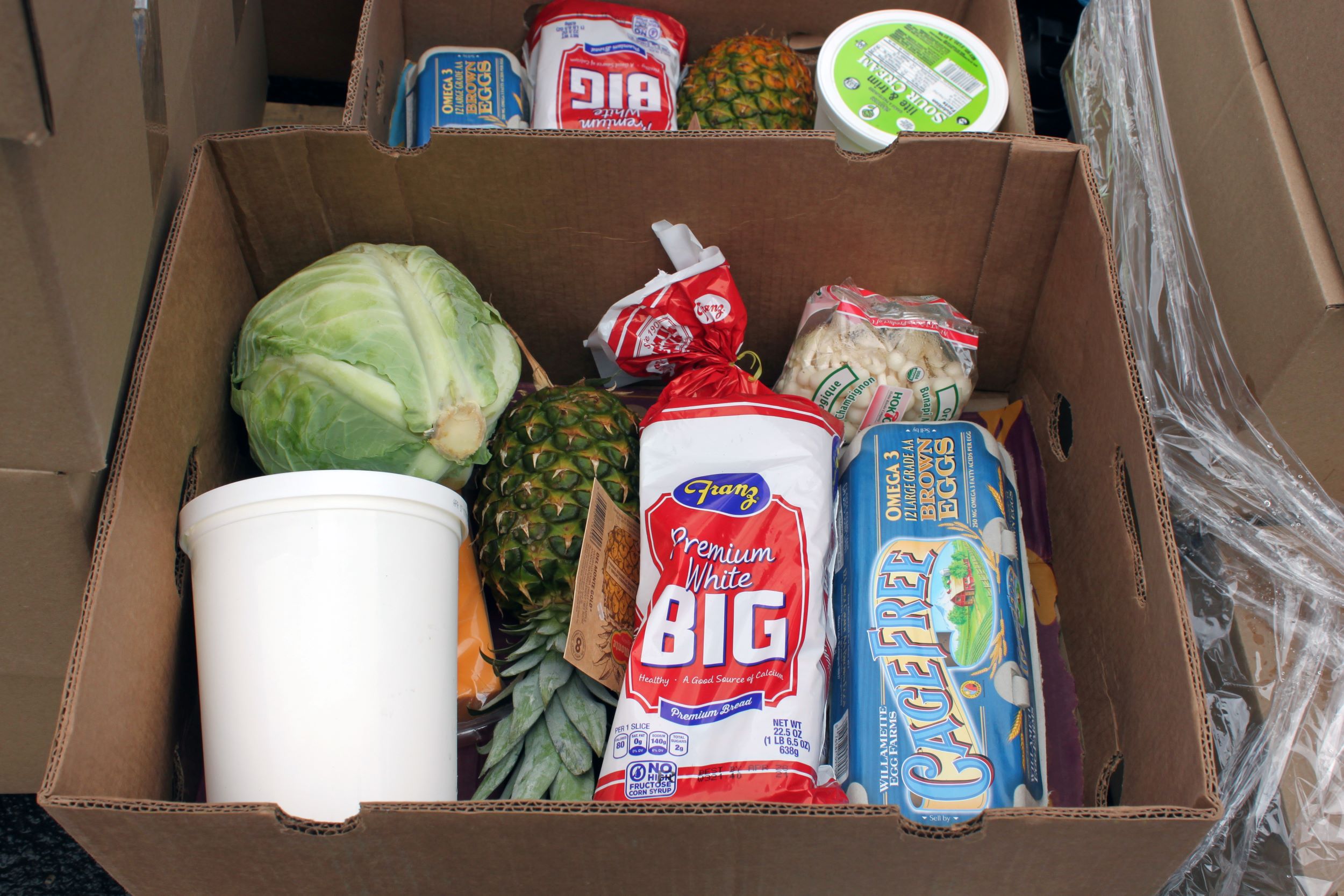
The Oregon Food Bank says it is seeing an increase in demand for hunger assistance, like food boxes, after need had fallen from a high during the pandemic.
Courtesy of Oregon Food Bank
Before the pandemic, in 2019, the number of people seeking assistance through the Oregon Food Bank system was 863,000.
In 2020, that number was 1.7 million. The next year, 1.2 million.
But now, Oregon Food Bank CEO Susannah Morgan says that the number is “going back up.”
“We are back in the worst level of hunger that this country has seen since the 1930s,” Morgan said during a roundtable discussion on hunger Friday.
Oregon Congresswoman Suzanne Bonamici hosted the roundtable, asking advocates from local and state organizations in Oregon about the region’s level of hunger and recent efforts to address food insecurity.
Bonamici acknowledged the recently signed Keep Kids Fed Act, which extends flexibility for meal programs operating this summer and next school year.
“I’m glad that Congress came together to extend the child nutrition waivers that were established at the beginning of the pandemic ... to make sure that children are not going hungry,” Bonamici said,
Bonamici also mentioned her work on the 2020 reauthorization of the Older Americans Act, which includes funds to support meal costs for seniors, and she highlighted the upcoming White House Conference on Hunger, Nutrition, and Health, the second-ever conference of its kind and the first since 1969.
Bonamici said her office is preparing a report for the Biden administration and asked participants to share their ideas to address food insecurity. Questions Bonamici asked the group to consider include:
- What specific actions should the federal government, both Congress and the executive branch, be taking to end hunger, improve nutrition, and eliminate disparities?
- How has your community been affected by hunger or diet-related disease?
- What existing federal programs are effective, and what could be expanded or improved?
- What federal or state programs are not working?
- Are there barriers that could be removed by the federal government that would help ease your work on hunger and nutrition?
Participants mentioned bringing back the child tax credit and making permanent the federal waivers that offered flexibility for school meal programs during the pandemic.
Portland Public Schools senior director of nutrition services Whitney Ellersick noted how certain policy changes could interfere with providing food by sharing one family’s story. She said the family filed a complaint because their child was unable to access free meals. Unlike the past two summers, grab-and-go meals for kids are not allowed, and parents are unable to pick up meals for their students.
“I just took a civil rights complaint for a family who has a student with special needs, where eating in the park is not an appropriate setting for their student,” Ellersick said. “They tried, and that was not the right environment.”
Ellersick said students and their families shouldn’t have to file paperwork or complaints to access food.
Though the Keep Kids Fed Act may offer more flexibility for summer meals, rules are not yet in place to enforce the new law.
Next school year, there will be more changes. Federal flexibility that allowed for universal free meals has ended. Schools will return to offering free and reduced-price lunches based on family income, meaning some students will eat for free, with others paying. Ellersick said she will continue to advocate for free meals for any student that wants one.
“We don’t charge a family for library books, right? Even if they can afford it, we don’t charge them for library books within the schools,” Ellersick said. “We don’t charge them for certain things, but we do charge them for food based on their socioeconomics.”
Other participants in the roundtable suggested adjusting the federal poverty limit and ensuring more opportunities for kids and adults to learn about nutrition and where their food comes from.
